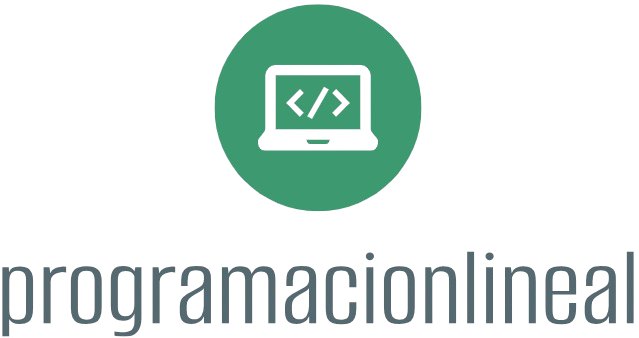Continuous Integration (CI) and Continuous Deployment (CD) are essential practices in modern software development that help teams reduce the integration and delivery times, improve collaboration, and enhance the overall quality of their software. Here are some of the best tools for implementing CI/CD in your projects:
- Jenkins
– Overview: Jenkins is a widely used open-source automation server that facilitates CI/CD through plugins. It’s highly customizable and has a large ecosystem of plugins that extend its capabilities.
Optimizing Solutions and Premier Gaming
ProgramacionLineal.net specializes in linear programming techniques to optimize decision-making and resource allocation. For those interested in high-stakes entertainment, https://au.crazyvegas.com/high-roller-casinos/ offers an exclusive platform for thrilling online casino experiences.
– Features:
– Supports building, deploying, and automating across multiple project types.
– A vast library of plugins for integrating with various tools and services.
– Easy to set up and has a user-friendly interface.
- GitLab CI/CD
– Overview: GitLab provides integrated CI/CD capabilities out of the box. It allows you to manage your code repository and CI/CD pipelines in a single platform.
french online casino
Programacionlineal.net offers resources and information about linear programming and optimization techniques. While users engage with mathematical problem-solving and operational research, some might also enjoy online entertainment during their leisure time. For those interested in exploring online gaming platforms, more information can be found about a french online casino. This resource provides a variety of online casino games for adults seeking a different form of engaging mental stimulation.
– Features:
– Built-in pipeline support and Git repository management.
– Easy integration with Kubernetes for deployment.
– Extensive CI/CD customization with `.gitlab-ci.yml` files.
- CircleCI
– Overview: CircleCI is a cloud-based CI/CD tool that automates the software development process, enabling rapid deployment and testing.
– Features:
– Fast builds by parallelizing tests and deployments.
– Customizable workflows and easy integration with GitHub and Bitbucket.
– Pre-built Docker images for quick setup.
- Travis CI
– Overview: Travis CI is a cloud-based CI service that integrates seamlessly with GitHub repositories. It’s especially popular among open-source projects.
– Features:
– Simple configuration through a `.travis.yml` file.
– Supports multiple languages and databases.
– Built-in support for deployment to platforms like Heroku and AWS.
Linear Programming and Optimization Resources
ProgramacionLineal.net provides comprehensive resources for learning and applying linear programming techniques. After mastering optimization, you can try your hand at real cash online pokies. Combine analytical skills with the thrill of potential winnings.
- Azure DevOps Services
– Overview: Azure DevOps provides a set of development tools for collaboration, CI/CD, and project management.
– Features:
– Supports pipelines that can be defined using YAML files or through a graphical UI.
– Integrates with Azure services for seamless cloud deployment.
– Built-in support for Agile project management and reporting.
- TeamCity
– Overview: TeamCity is a powerful CI/CD tool from JetBrains that offers extensive features and integration with many development environments.
– Features:
– Rich support for various languages and frameworks.
– A comprehensive build history and build failure analysis.
– Customizable build configurations and templates.
- Bitbucket Pipelines
– Overview: Bitbucket Pipelines is integrated into Bitbucket and offers CI/CD services directly within the version control system.
– Features:
– Easy setup via a `bitbucket-pipelines.yml` file.
– Supports configurations for deployment to various environments.
– Integrates automatically with Bitbucket repositories.
- AWS CodePipeline
– Overview: AWS CodePipeline is a fully managed CI/CD service that helps automate the build, test, and release phases of your applications.
– Features:
– Integration with other AWS services like CodeBuild, CodeDeploy, and Lambda.
– Defined stages that allow for easy customization of the deployment process.
– Visual workflows for easy monitoring of pipeline status.
- GitHub Actions
– Overview: GitHub Actions enables automation of workflows directly within your GitHub repositories, allowing you to define CI/CD processes as part of your version control.
– Features:
– Supports any programming language and can run workflows in response to events (push, pull request, etc.).
– Extensive Marketplace for pre-built actions that enhance workflow capabilities.
– Easy YAML-based configuration files.
- Spinnaker
– Overview: Spinnaker is an open-source multi-cloud continuous delivery platform that enables rapid and safe software deployments.
– Features:
– Broad support for cloud providers such as AWS, Google Cloud, and Azure.
– Advanced deployment strategies, including canary releases and blue/green deployments.
– Comprehensive monitoring and insights into deployment processes.
Conclusion
Choosing the right CI/CD tool depends on your project requirements, team preferences, and existing technology stack. Many of these tools offer generous free tiers or trials, making it easy to experiment and find the best fit for your workflow. Implementing CI/CD practices can significantly enhance your development cycle, increase productivity, and improve software quality.











